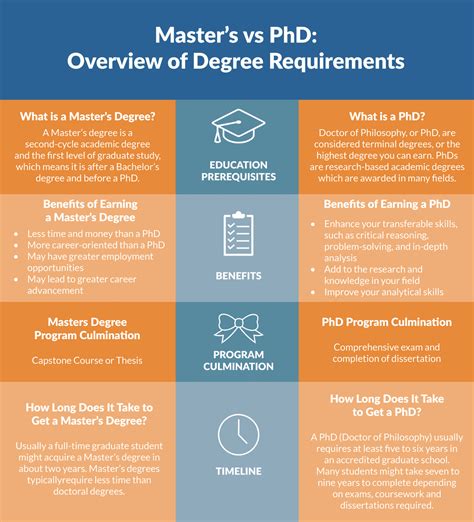The decision of whether or not to pursue a master’s degree before a PhD is a significant one that can have long-term implications for your career. While a master’s degree can provide valuable benefits, it’s important to carefully consider your individual circumstances and goals before making this decision.

Benefits of a Master’s Degree
- Stronger Foundation: A master’s degree deepens your understanding of your chosen field and provides you with specialized knowledge and skills. This can give you a competitive edge in the job market and prepare you for more advanced research.
- Career Advancement: In some fields, such as business, education, and healthcare, a master’s degree is often the minimum requirement for career advancement.
- Research Experience: Master’s programs often include a research component, which can give you valuable experience in conducting independent research. This can be particularly beneficial if you plan to pursue a PhD in the future.
- Additional Networking: Master’s programs offer opportunities to connect with professors, classmates, and industry professionals, which can expand your professional network.
Downsides of a Master’s Degree
- Time and Financial Cost: A master’s degree typically takes two years to complete and can cost upwards of \$50,000. This can be a significant investment in terms of time, money, and opportunity cost.
- Delayed PhD: Pursuing a master’s degree will delay your progress towards a PhD. This can be a factor to consider if you are eager to enter the job market or begin your research career.
- Not Essential for All Fields: In some fields, such as the sciences and engineering, a master’s degree is not always necessary for a successful career. If you are unsure about whether a master’s degree is required in your field, consult with professors, advisors, and potential employers.
Making the Decision
Ultimately, the decision of whether or not to pursue a master’s degree is a personal one. Consider the following factors:
- Your Field of Study: Research the job market and career paths in your chosen field. Determine whether a master’s degree is the norm or required.
- Your Career Goals: Determine how a master’s degree aligns with your career aspirations. Consider whether it will provide you with the necessary skills and qualifications.
- Your Financial Situation: Factor in the cost of a master’s degree and determine if you can afford the investment. Consider scholarships, assistantships, and loans if necessary.
- Your Personal Circumstances: Evaluate your personal commitments and responsibilities. Determine if you have the time and resources to dedicate to a master’s program.
Effective Strategies
- Research different master’s programs to find one that aligns with your interests and goals.
- Talk to professors, advisors, and potential employers to gather insights on the value of a master’s degree in your field.
- Consider your financial situation and explore options for funding.
- Prepare for the GRE or other required exams.
- Write a strong statement of purpose that highlights your qualifications and motivations for pursuing a master’s degree.
Common Mistakes to Avoid
- Making a hasty decision: Take your time to research and consider your options before making a decision.
- Not considering career goals: Focus on how a master’s degree will enhance your career prospects.
- Neglecting the financial implications: Be realistic about the cost of a master’s degree and how it will impact your future finances.
- Overestimating the value of a master’s degree: While a master’s degree can be valuable, it’s not always necessary for success in all fields.
- Not seeking guidance: Consult with mentors, professors, and trusted individuals for advice and support throughout the decision-making process.
Conclusion
The decision of whether or not to pursue a master’s degree before a PhD is a complex one. By carefully considering the benefits, downsides, and your individual circumstances, you can make an informed choice that is right for you. Remember, the goal is to enhance your career prospects and prepare you for success in your chosen field.
